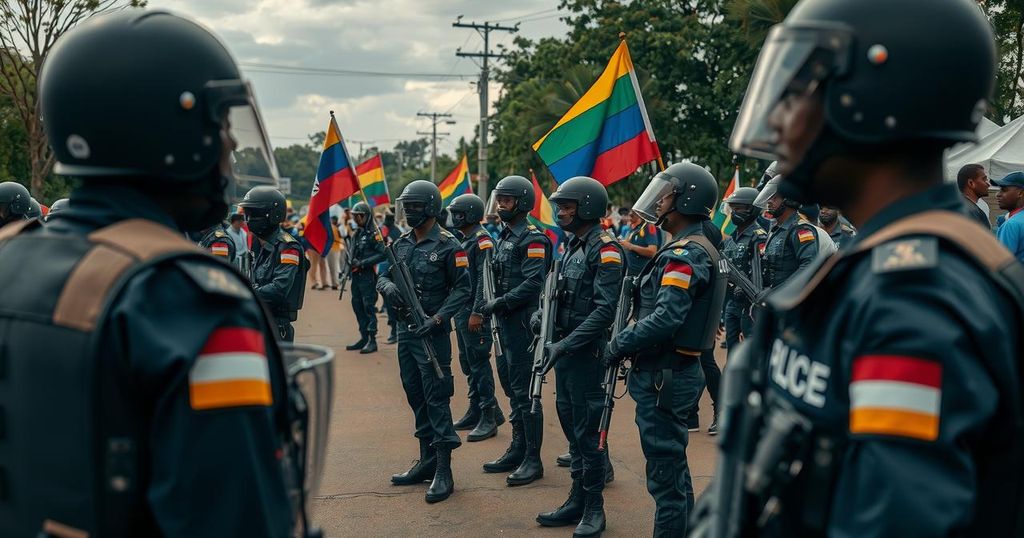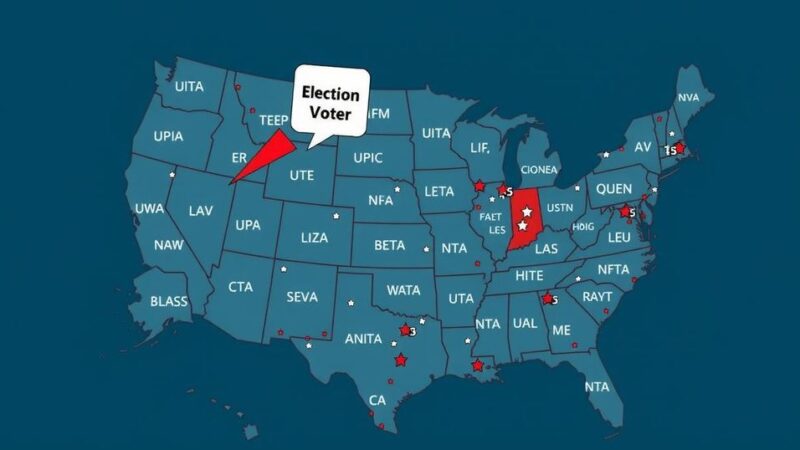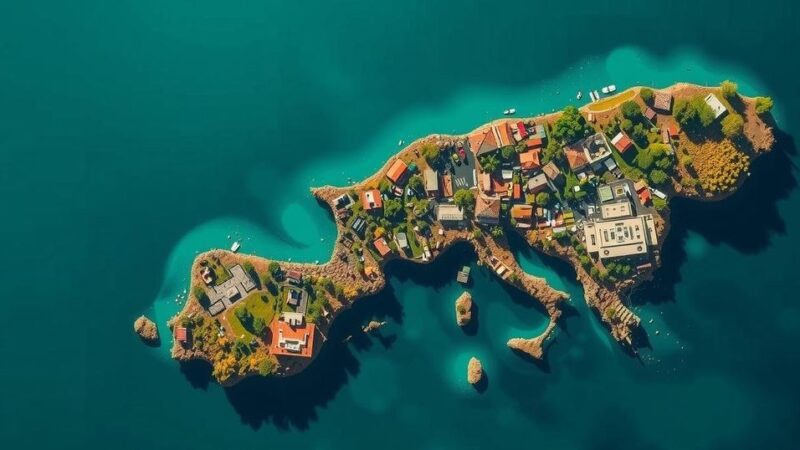Riot police in Maputo, Mozambique, used tear gas to disperse crowds protesting electoral fraud shortly after two opposition allies were killed. Opposition leader Venancio Mondlane called for a general strike based on perceived election irregularities, resulting in widespread demonstrations and shop closures in the capital. International bodies condemned the violence, while local observers reported issues with the election process, indicating a potential legitimacy crisis for the ruling Frelimo party.
In Maputo, the capital of Mozambique, riot police resorted to the use of tear gas to disperse demonstrators protesting against alleged electoral fraud following the October 9 elections. The protests emerged after two allies of opposition leader Venancio Mondlane were fatally shot, exacerbating tensions in an already volatile political environment. During the protest, several hundred individuals, including journalists, fled as heavily armed officers advanced along a central thoroughfare. Reports indicate that some police officers discharged handguns in the process of dispersing the crowd. Adriano Nuvunga, who directs the Mozambique Centre for Democracy and Human Rights, reported that bullets struck two journalists and a security guard, although they did not sustain major injuries. Opposition leader Venancio Mondlane had previously called for a general strike to contest early electoral results indicating that the ruling Frelimo party was in the lead. The atmosphere in Maputo was tense, with shops shuttered and helicopters hovering overhead. Mondlane, who was present at the demonstration, shared a video on Facebook depicting his escape from tear gas amid a throng of supporters. He recounted his attempts to join the protest, stating, “This morning I couldn’t get out of my house. I had people at my doorstep, including the police. It took me an hour to get out.” The weekend prior saw a spike in violence with the assassination of two of Mondlane’s associates, Elvino Dias and Paulo Guambe. The two men were reportedly ambushed and shot while in a vehicle, a development that has raised significant concerns among national and international observers. The European Union, African Union, and United Nations have condemned the escalating violence and called for accountability regarding the recent killings. UN Secretary-General Antonio Guterres has urged all Mozambicans to maintain calm and eschew violence. The political landscape in Mozambique is currently marred by accusations of electoral fraud, including reports of voting manipulation and intimidation during the elections, which observers have stated did not comply with international democratic standards. The upcoming official election results are anticipated amidst concerns over the legitimacy of the democratic process. The current president, Filipe Nyusi, is stepping down after two terms, with the ruling party’s candidate, Daniel Chapo, positioned as the likely successor. Mondlane, who has declared himself victorious despite the adverse election conditions, referenced the impact of the strike, affirming that “The country was paralysed … 95 percent of private and public services across the country were paralysed.”
The political climate in Mozambique has been tumultuous particularly following the recent presidential and parliamentary elections held on October 9, 2023. The ruling Frelimo party, which has been in power since Mozambique’s independence in 1975, faced significant opposition from various political groups, notably the leader Venancio Mondlane of the Renamo party. The elections were marred by claims of electoral fraud, violence, and intimidation, raising alarm among the international community regarding the integrity of the electoral process. The subsequent protests and violent incidents highlight the desperation and frustration felt by opposition supporters, as well as the deepening divisions within the country’s political landscape.
In conclusion, the situation in Mozambique remains highly precarious following the recent elections, characterized by allegations of electoral fraud and violence. The response from law enforcement, including the use of tear gas against demonstrators, underscores the intensity of the conflict between the opposition and the ruling party. With international condemnation of the violence and calls for accountability from various organizations, the future political stability of Mozambique remains uncertain. Mondlane’s assertions of electoral victory and calls for broad protests reflect the widespread dissatisfaction among opposition supporters and a collective demand for transparency and democratic integrity.
Original Source: www.aljazeera.com






